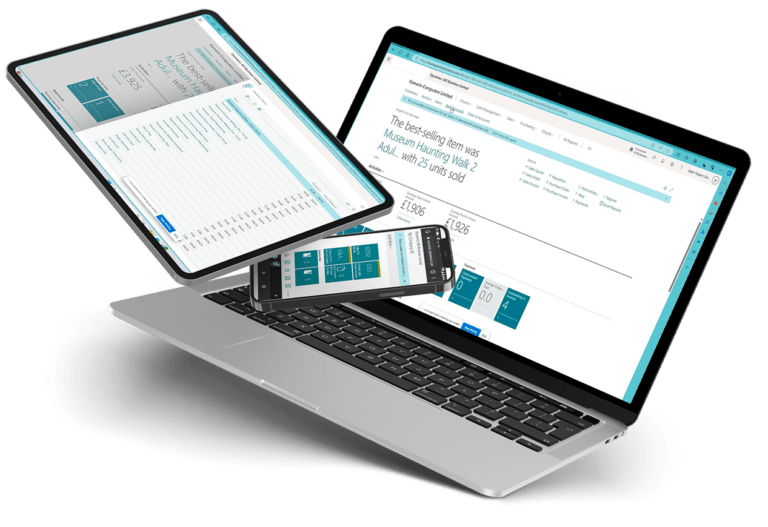In a world increasingly focused on sustainability, businesses are continually seeking ways to reduce their environmental footprint while improving their operational efficiency. One often-overlooked avenue for achieving these goals is the adoption of a robust Electronic Point of Sale (EPOS) system. Beyond just streamlining sales and transactions, a good EPOS solution can play a pivotal role in helping businesses align with sustainability objectives. In this blog, we’ll explore how implementing a quality EPOS system can lead to reduced paper and printing, enhanced stock management, and a host of other eco-friendly benefits.
1. Going Paperless: A Greener Approach
One of the most apparent benefits of integrating an EPOS system into your business is the significant reduction in paper usage. Traditional point-of-sale systems often rely heavily on paper receipts, invoices, and transaction records. However, with a modern EPOS system, paper becomes almost obsolete. Electronic receipts and digital record-keeping eliminate the need for physical paperwork, leading to substantial savings in terms of both resources and costs.
By adopting this paperless approach, businesses can reduce their reliance on paper products, contributing to a greener planet. Additionally, customers appreciate the option of digital receipts, aligning your brand with their eco-conscious values.
2. Streamlined Stock Management for Reduced Waste
Effective stock management is a cornerstone of sustainability in retail and hospitality. An advanced EPOS system, that links directly into your stock management, provides real-time inventory tracking and analytics, allowing businesses to optimize stock levels, minimize overstocking, and reduce unnecessary waste. Here’s how:
Precise Inventory Control: EPOS & stock control systems provide detailed insights into sales trends, allowing businesses to forecast demand accurately. This precision helps in ordering only what’s necessary and prevents excessive inventory buildup.
Stock Rotation: An EPOS and stock system can help implement First-In, First-Out (FIFO) inventory management. This ensures that older stock is sold before newer stock, reducing the risk of perishable items going to waste.
Reduction in Spoilage: For businesses dealing with perishable goods, timely inventory management via EPOS can minimize spoilage by ensuring that items are sold before their expiration dates.
3. Data-Driven Sustainability Initiatives
Modern EPOS solutions don’t just facilitate transactions; they generate valuable data insights. This data can be harnessed to support sustainability initiatives:
Energy Efficiency: EPOS systems can help track energy consumption patterns in your business, identifying opportunities for energy-saving measures. For example you can track enegergy consumption with smart meters to consider what devices or times of the day use the most energy, once you have a good understanding of this you can start to identify energy saving measures like turning equpiment off or change of procedures.
Customer Behavior Analysis: By analyzing purchasing data, businesses can tailor marketing efforts to encourage more eco-friendly choices among customers, such as promoting sustainable products or encouraging the use of reusable containers.
Waste Reduction: EPOS-generated data can help identify areas where waste reduction efforts can be focused. This data can be used to identify products that are regularly wasted, either because they are not selling well or because they are being spoiled. Once these products have been identified, businesses can take steps to reduce waste, such as reducing inventory levels or changing the way they store products.
4. Enhanced Efficiency, Reduced Carbon Footprint
A well-implemented EPOS system streamlines business operations across the board. This efficiency translates into reduced energy consumption, shorter wait times for customers, and less strain on resources.
Faster Transactions: Shorter transaction times reduce the energy consumption of point-of-sale hardware and the time customers spend in your business, contributing to a lower carbon footprint.
Improved Supply Chain Management: EPOS systems can help optimize supply chains, reducing the environmental impact of transportation and logistics.
Remote Management: Many EPOS systems offer remote management capabilities, allowing businesses to monitor and control their operations from anywhere, saving time and resources.
In conclusion, adopting a quality EPOS solution can be a game-changer for businesses looking to align with sustainability goals. By going paperless, streamlining stock management, leveraging data insights, and enhancing overall efficiency, businesses can reduce their environmental footprint while improving their bottom line. It’s a win-win situation that not only benefits the planet but also positions your business as a responsible and forward-thinking contributor to a more sustainable future.




